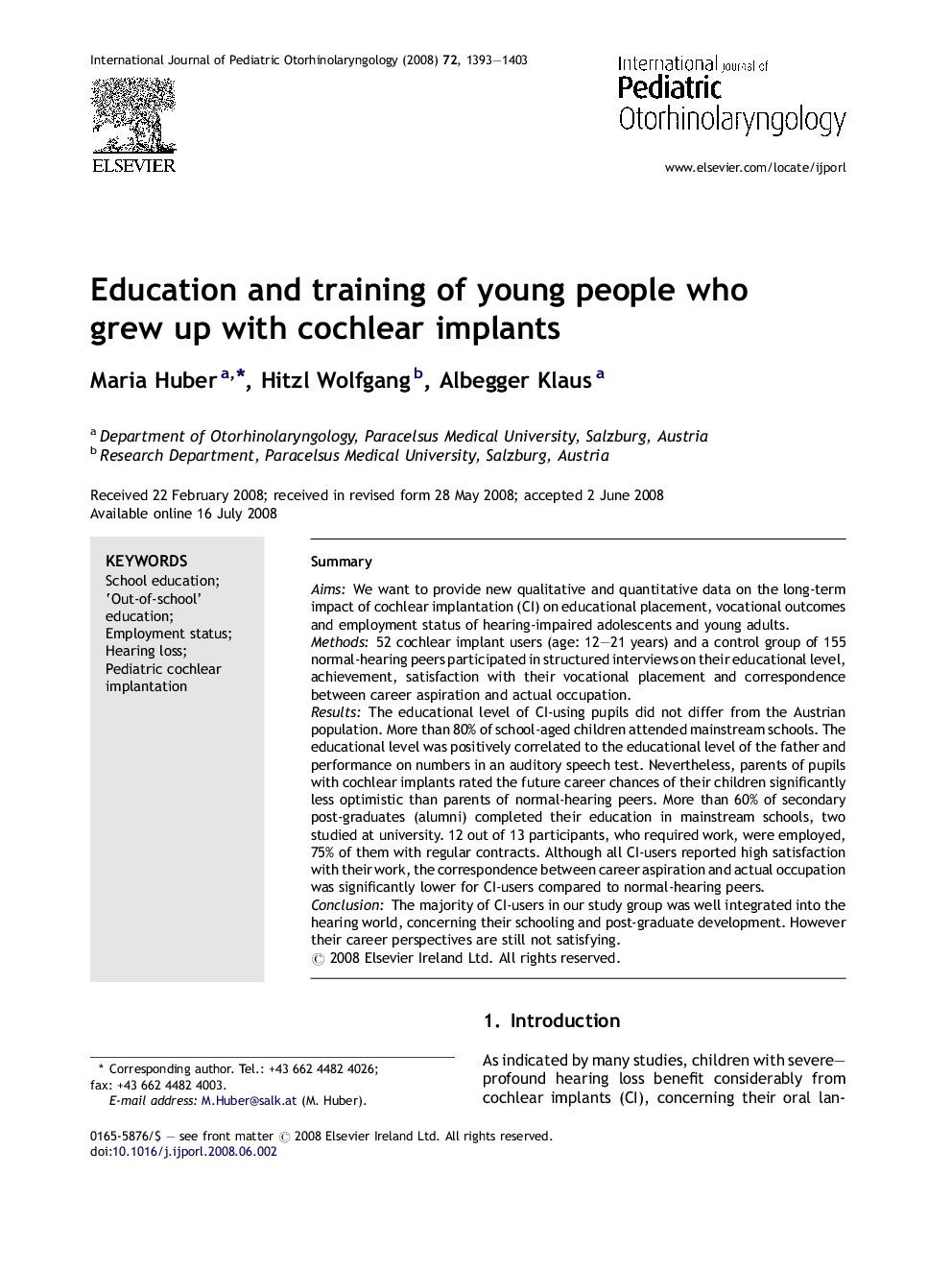| Article ID | Journal | Published Year | Pages | File Type |
|---|---|---|---|---|
| 4114542 | International Journal of Pediatric Otorhinolaryngology | 2008 | 11 Pages |
SummaryAimsWe want to provide new qualitative and quantitative data on the long-term impact of cochlear implantation (CI) on educational placement, vocational outcomes and employment status of hearing-impaired adolescents and young adults.Methods52 cochlear implant users (age: 12–21 years) and a control group of 155 normal-hearing peers participated in structured interviews on their educational level, achievement, satisfaction with their vocational placement and correspondence between career aspiration and actual occupation.ResultsThe educational level of CI-using pupils did not differ from the Austrian population. More than 80% of school-aged children attended mainstream schools. The educational level was positively correlated to the educational level of the father and performance on numbers in an auditory speech test. Nevertheless, parents of pupils with cochlear implants rated the future career chances of their children significantly less optimistic than parents of normal-hearing peers. More than 60% of secondary post-graduates (alumni) completed their education in mainstream schools, two studied at university. 12 out of 13 participants, who required work, were employed, 75% of them with regular contracts. Although all CI-users reported high satisfaction with their work, the correspondence between career aspiration and actual occupation was significantly lower for CI-users compared to normal-hearing peers.ConclusionThe majority of CI-users in our study group was well integrated into the hearing world, concerning their schooling and post-graduate development. However their career perspectives are still not satisfying.
